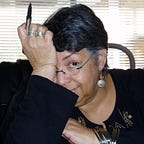June 11, 1963
On this day, 60 years ago…
“…We are confronted primarily with a moral issue. It is as old as the Scriptures and is as clear as the American Constitution. The heart of the question is whether all Americans are to be afforded equal rights and equal opportunities, whether we are going to treat our fellow Americans as we want to be treated…We face, therefore, a moral crisis as a country and a people … A great change is at hand, and our task, our obligation, is to make that revolution, that change, peaceful and constructive for all.”
After watching Alabama Governor George Wallace’s ridiculous antics during the standoff with Deputy Attorney General Nicholas Katzenbach and the National Guard on the front steps of the University of Alabama, President Kennedy had seen enough. So, he reached out to television and radio networks and requested airtime for a speech he would deliver from the Oval Office later that evening. After watching the address in Atlanta, Rev. Martin Luther King Jr. sent a telegram to the president saying: “I have just listened to your speech to the nation. It was one of the most eloquent, profound, and unequivocal pleas for justice and freedom of all men ever made by any President. You spoke passionately for moral issues involved in the integration struggle.”
June 12, 1963
Then, just a few hours later, shortly after midnight in Jackson, Mississippi, NAACP field secretary, Medgar Evers arrived home after attending a meeting. Reportedly, he had called his wife Myrlie, earlier to remind her to allow their 3 children to stay up and watch the president’s speech and had listened to it himself. After pulling into the driveway of their home at 2332 Guynes Street (now Margaret Walker Alexander Street), shortly after midnight, he parked behind his wife’s car and, after exiting his car, was almost in the carport when an assassin, hiding and crouching in the Honeysuckle bushes across the street, shot him in the back with a high-powered rifle. After hearing the shot, Myrlie Evers and their three children ran out to the carport where they found Medgar dragging himself toward the door and then losing conscientiousness. Several neighbors rushed to the scene and made calls for help. But none came. So, one of the neighbors drove him to the local whites-only hospital, the University of Mississippi Medical Center (UMMC). And with time wasting, and several doctors standing by, uselessly lamenting that the hospital was “out of Negro blood”, one lone white doctor stepped in and began administering treatment in a futile attempt to save the life of this courageous and extraordinary man. A U.S. Army veteran who, during several years of distinguished military service, had served this country at the invasion of Normandy. He was pronounced dead less than an hour after being shot. He was 37 years old.
